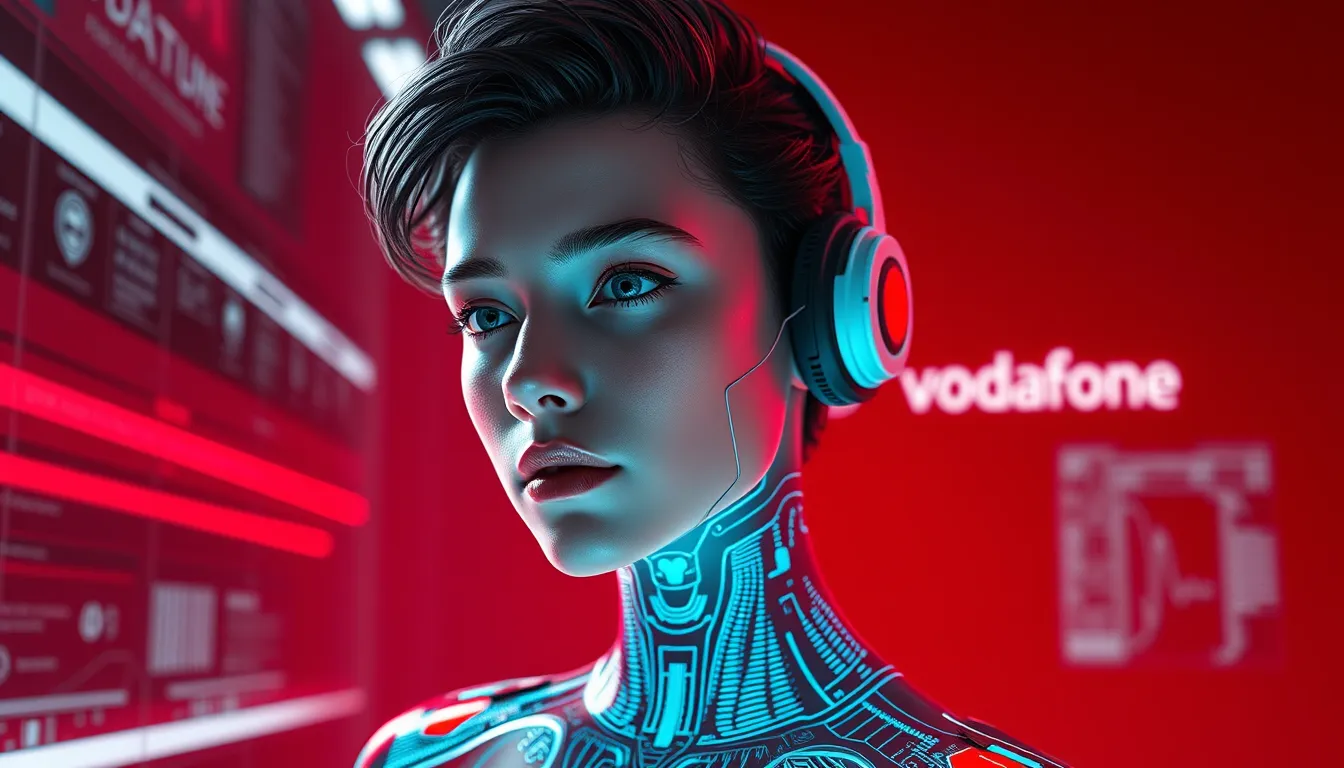Now Reading: Cutting-Edge AI-Generated Influencer Drives Vodafone Campaign
-
01
Cutting-Edge AI-Generated Influencer Drives Vodafone Campaign
Cutting-Edge AI-Generated Influencer Drives Vodafone Campaign

Cutting-Edge AI-Generated Influencer Drives Vodafone Campaign
Introduction
In today’s fast-evolving digital landscape, the rise of the AI-generated influencer represents a groundbreaking shift in influencer marketing and digital marketing innovation. As brands continuously adapt to new technological advancements, the blend of technology and creativity redefines authenticity in digital media. Vodafone’s recent AI campaign exemplifies this trend, showcasing how cutting-edge generative AI transforms traditional advertising into a futuristic, synthetic art form.
The Rise of Synthetic Influencers
Over the past few years, synthetic influencers have emerged as a potent force in digital marketing. Unlike traditional influencers, an AI-generated influencer is entirely created using advanced algorithms and generative AI, offering a novel approach to content creation. The benefits of this technology include:
- Enhanced creative freedom in storytelling
- Consistent brand messaging with no human error
- The ability to tailor narratives precisely to target audiences
The AI-generated influencer not only challenges conventional perceptions of authenticity but also sets a new benchmark in influencer marketing. This innovation continues to draw attention as more brands explore its potential to engage audiences in unprecedented ways.
Vodafone AI Campaign: A Pioneering Case Study
Vodafone’s AI campaign is a clear example of how brands can leverage AI technology in advertising to capture public interest. By integrating a fully synthetic persona into its campaign, Vodafone highlights both the intrigue and potential of generative AI. The campaign, available at Vodafone’s official website, demonstrates:
- A seamless blend of digital media innovation
- High-quality, lifelike visuals generated by AI
- An engaging narrative that blurs the lines between traditional advertising and futuristic storytelling
This innovative approach has catapulted Vodafone into the spotlight, reaffirming its commitment to embracing digital transformation and reimagining consumer engagement in a highly competitive market.
Exploring Ethical Implications of AI Influencers
As with any emerging technology, the adoption of AI-generated influencers brings forth important discussions about ethics and transparency. Critics argue that using a synthetic persona may raise questions about consumer trust and the ethical implications of AI influencers. Key ethical concerns include:
- AI-powered influencer transparency
- The risk of misleading consumers about authenticity
- Regulatory challenges surrounding disclosure standards
Despite these concerns, many industry experts believe that if implemented with clear guidelines, AI-generated influencers can uphold ethical standards while pushing the boundaries of digital content creation. This dialogue is crucial for fostering an environment where technological innovation is balanced with responsibility.
How Vodafone Uses Generative AI in Advertising
Vodafone’s approach to generative AI in advertising is both innovative and instructive. By harnessing advanced algorithms, the campaign not only brings a synthetic influencer to life but also tailors content to resonate with a digitally-savvy audience. This integration of AI technology in advertising has several notable benefits:
- Improved creative processes through data-driven insights
- Enhanced customization of content tailored to audience preferences
- The creation of dynamic, interactive advertising that evolves in real time
The campaign effectively answers the question of how Vodafone uses generative AI by combining technical prowess with creative storytelling. The result is a distinctive blend of art and technology that captivates viewers and sets a benchmark for future advertising initiatives.
Impacts on Digital Marketing and Future Trends
The success of the Vodafone AI campaign signals a new era for digital marketing innovation. As brands continue to explore the capabilities of AI, several trends are emerging:
- Increased reliance on AI-generated content for influencer marketing
- Greater emphasis on authenticity in digital media, even when using synthetic personas
- A growing conversation around the ethical implications of using AI in advertising
Looking ahead, the future of synthetic influencers appears promising. As AI technology continues to evolve, we can expect more refined techniques that further blur the lines between real and virtual personas. This evolution is set to revolutionize influencer marketing by providing brands with opportunities to connect with audiences in deeper, more personalized ways.
Conclusion
Vodafone’s latest campaign serves as a compelling case study in leveraging an AI-generated influencer for groundbreaking digital marketing innovation. By pushing the boundaries of what is possible with generative AI, the campaign not only enhances influencer marketing strategies but also sparks critical debates about ethical implications and authenticity in digital media. This pioneering initiative underscores the potential of AI technology in advertising and paves the way for a future where synthetic influencers become a mainstream component of digital storytelling. As brands explore these innovative avenues, it is imperative to balance technological advancements with transparency and ethical considerations, ensuring that the digital revolution benefits both marketers and audiences alike.

























